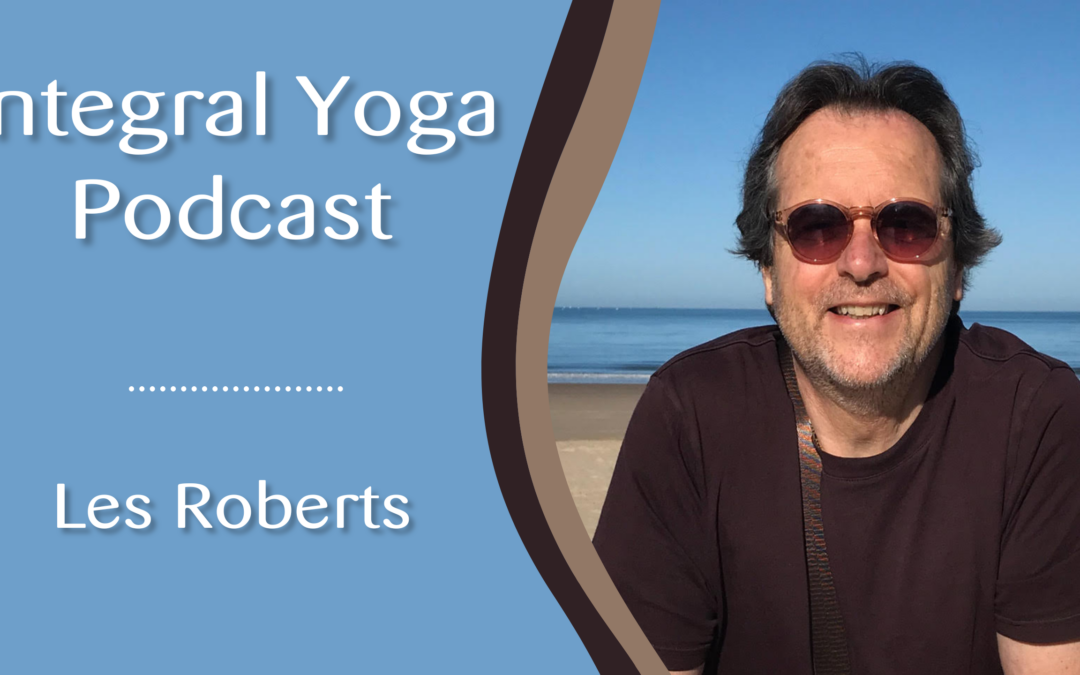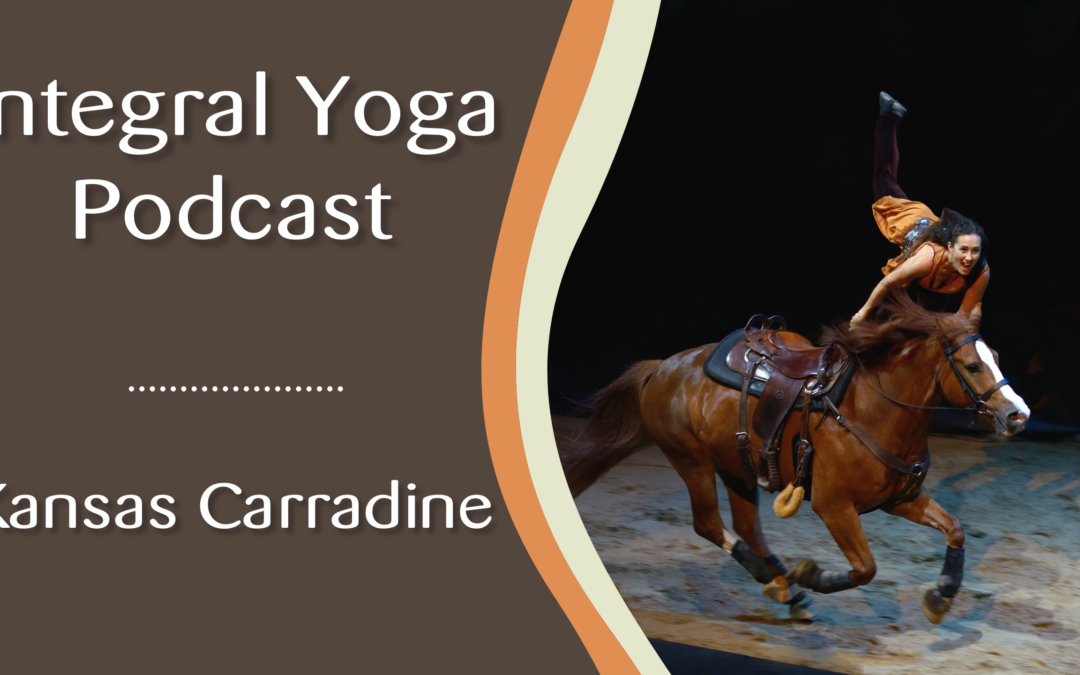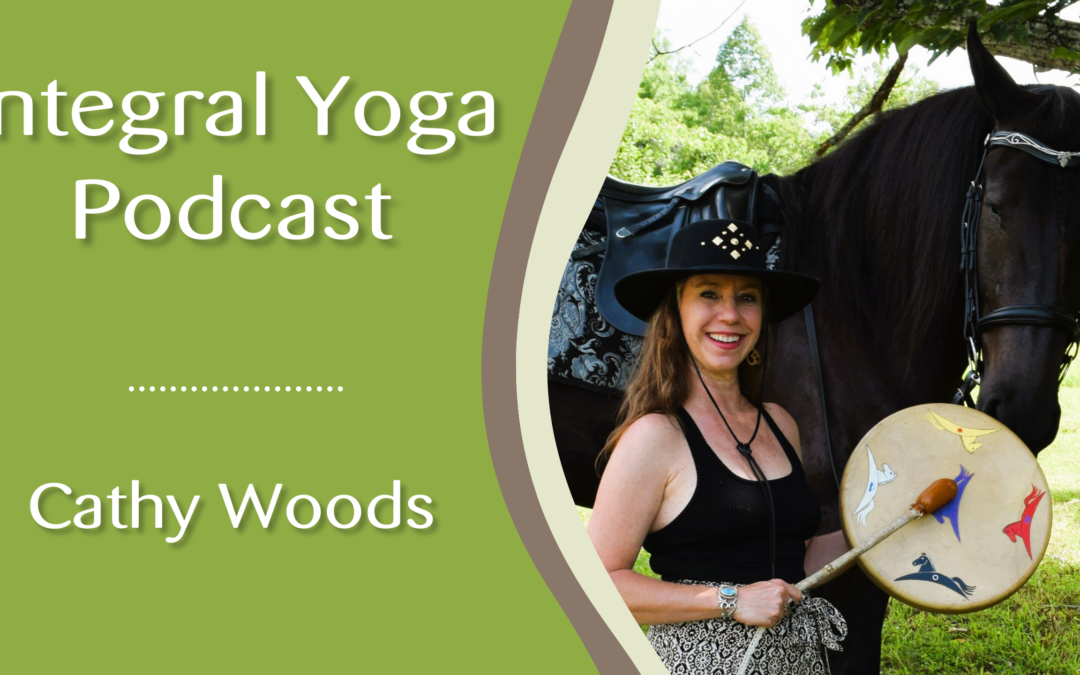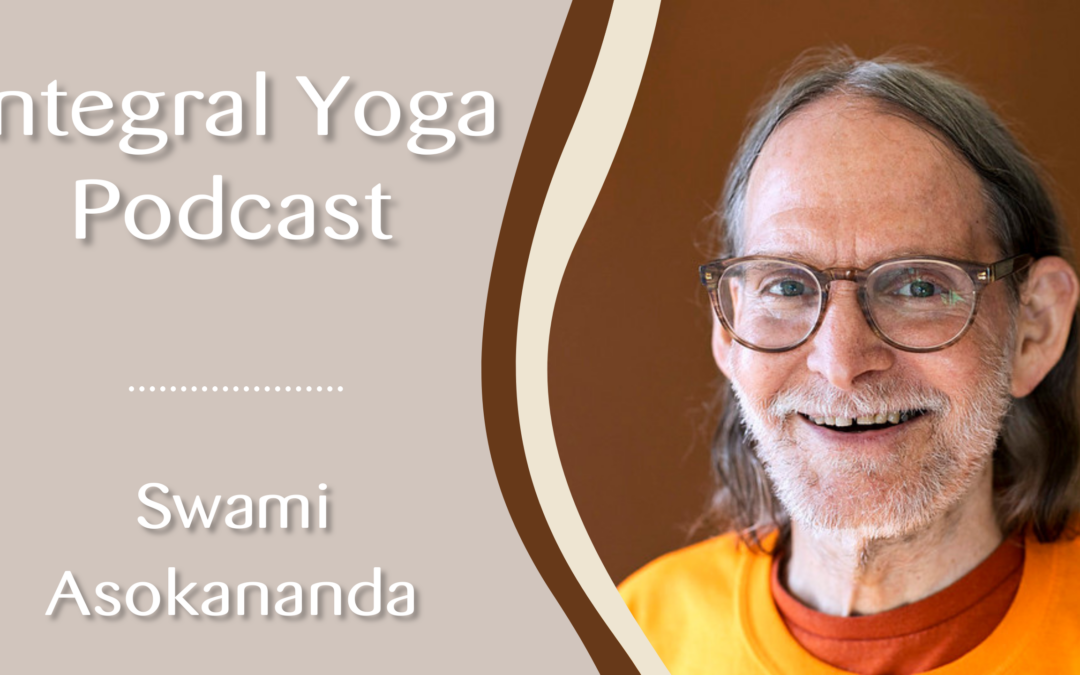Not yet available.Unknown Speaker 0:00
Many people when you first come here, you're just blown away that this place even exists. Do I expect it to be, you know, all
Unknown Speaker 0:06
fun and rosy all the time that you
Unknown Speaker 0:08
need to go all the way in order for it to be successful,
Unknown Speaker 0:12
but at the same time, I don't want to go overboard in that direction.
Unknown Speaker 0:17
There's almost a selfish selflessness that comes from it.
Unknown Speaker 0:21
You don't know how much better it can be until you experience it. Hello, and welcome to integral yoga podcast. So glad you're here. I am privileged to be joined today by Zack Parker. And a little bit about Zack, he has been teaching yoga since 2014. And he is certified as an advanced hatha yoga and restorative yoga instructor. Zacks teaching is a natural extension of his own practice. He approaches his teaching with a balanced blend of light hearted ease and focused awareness on the subtle sensations of his yoga practice. That currently serves as the online Programs Coordinator at satchidananda Ashram yoga Ville, as well as regularly teaching a variety of yoga classes. And he holds a master's degree in anthropology. So Zach, my friend, thanks for taking the time to be with us today.
Unknown Speaker 1:23
Thanks, Avi. I'm happy to be here to talk to you always.
Unknown Speaker 1:26
So I want to start by asking you this question. How would you explain how kind of diving into the world of Yoga has changed your life? How has it affected you?
Unknown Speaker 1:40
Oh, man, it's a big question. many ways, I suppose many ways. Part of its in general outlook on what's possible to experience day in and day out throughout your life, what level of happiness, enjoy contentment peace, that it's possible to experience as we go throughout our life. I think it expands the possibility that I feel you can experience that I can experience as I move through my days. And so whereas before yoga, I would say I had a more limited ceiling on what I even subconsciously understood was possible to be happy and joyful, blissful. And through yoga, and the yoga practices and the examples of people I see. Living the yogic lifestyle, I would say that my, my view on just what's possible, has expanded. And I'm really grateful for that.
Unknown Speaker 2:53
So just if we consider like a day, how would you say like the flavor of your days now, kind of being deep in a yoga practice are different, like the feelings, the sensations that you experience? Now, throughout your days? How is that different than maybe the way it was when you were younger? And before yoga?
Unknown Speaker 3:22
Yeah, it's a delicious flavor. I don't know if Ben and Jerry's can somehow capitalize on the delicious yogurt flavor. I think about it a little bit with you asking me that. Almost like the difference between a black and white television and color television for maybe a lower definition to higher definition to 4k television. So it's almost like through the course of meditation and Hatha Yoga, chanting, pranayama, etc, these different practices. I feel like my experience of life, the sensations that I take in and how I feel throughout my day, is richer, it's more colorful and sharper, it's brighter, it's lighter. And so it is almost as if the world around me is has been tuned from black and white to color and getting into Hd 4k territory. And I couldn't totally explain why that is the case, even with the mechanics or through and through, but between my body feeling more clean, more useful, my mind feeling clear. And my heart, my emotions, the way I feel about things feeling more clear and at ease, I think gives a richness to my daily experience that I wouldn't have even thought was possible before. Whereas the thing you don't know what you don't know, and then the door gets opened and you think, Oh my god, it here this is,
Unknown Speaker 5:08
yeah, I just want to kind of pause and reflect on that a little bit. Because I think it's very big, like you don't know, what you don't know until you know. Another way I would frame that is like, you don't know how much better it can be until you experience it, you know, maybe also know how much worse it can be until you experience it. But the better is, is a nice one, because then that sets me on a trajectory towards improvement. Right. But it's kind of amazing. Sometimes. It's like, Oh, my gosh, I didn't realize that I was only living in black and white. And now this color is is is incredible. Is it also important for you to reflect a little bit on the black and white? In order to appreciate where you found yourself in this environment of more more color?
Unknown Speaker 6:02
That's a good question. I would say so I mean, my thought when you ask that is the possibility of being a bit jaded after a while maybe. And I can say, especially living at the art from here, as you do, and as we both have for a few years now. There's a sensation that comes and goes and waves where I think us and like many people, when you first come here, you're just blown away that this place even exists, that there's a big lotus flower in the middle of rural Virginia, where people of all backgrounds are welcome to come and be at peace with one another, and worship and live in interact with one another in a very loving, caring way, blows you away, and you're just open eyed and kind of gazing around like a deer in headlights, amazed at the whole thing. And, and then over time, you know, you live here and, and life takes hold. And there's certain realities of most of our lives that can be challenging. And so over time, there's definitely been periods where I feel like I I lose sight of just how special it is to live in a place like this. And thankfully, I get reminded pretty regularly as well. But I think that's it's the same just in general with yoga, regardless of where you live. Yeah, to be able to look back at a time when maybe things weren't as bright and colorful and rich, they were more difficult and challenging. And just your natural state of being the default setting on which you operate. It was doler. That's all you knew at the time. And then as that expands and opens, I would say there is value in remembering that there's something that adds a certain reward that you feel like that you you don't lose sight of, if you keep in mind where you were starting from.
Unknown Speaker 8:16
It almost seems like a practice in itself to have that perspective. Yeah. I wanted, I wanted to ask you about about being a kid a little bit and kind of our past selves. How do you reconcile kind of the ambitions that you might have had when you're younger? With the current reality that you're experiencing? Right? Like? I would, I would bet that when you were younger, you did not expect for yourself to be you know, maybe a yogi living living in an ashram. Right, you probably had some some other ideas I think you had in your bio, also, that you wanted to, you know, play in the World Cup, and I'm sure different things, but how do you reconcile that like the ambitions of of your past self and the reality of now?
Unknown Speaker 9:10
Hmm. Well, it's definitely shifted and transformed over time. I think it really goes back to what we've been talking about with not even knowing certain possibilities are there until you see it. And so I've, funnily enough been talking with my dad about this very thing recently. Where, yeah, I had different dreams throughout childhood and what I wanted to be when I grew up, and all these things, I know that for as long as I can remember, a pretty steady current within me, has been wanting to prioritize the values that I find most important in my life and to live a life based on those values. And then the effort then is to figure out how I can create a life around me So that I can be supported and, you know, fed and clothed and housed and everything, but also keep the values that I hold dear to my heart as the top priority. And without knowing that something like yoga, like a communal lifestyle, here, the art from all the things that come from the yoga practice that I've experienced, without even knowing that that's there, then it can, it was more difficult to imagine just how I can live a life as truly based on my own values as possible. And then you get exposed to different things in the world. You travel around and talk to different people you experiment and explore. And I'm very fortunate to have found a life that is so well suited to what I value. But I know that it's it's different than what I could have imagined as a child. Because I didn't know such things were possible. I even remember, I hope this isn't too much of a tangent. But I'm remember being pretty blown away when I first in college started going to a lot of different music festivals. And they were really amazing experiences. And there was a similar sensation of how people interacted there and the kind of joy and love and kindness that was shared there that I don't feel like I had ever experienced before in life in any setting. And there were a few times when I, when I first went to these different music festivals where I can just stand and look around and be amazed that such a thing existed at all I can feel walls in my consciousness start to break down and barriers be removed around the idea of what I even thought was possible. And the same holds true with yoga. The same holds true with the ashram here. And then just to close out. When talking to my own dad about it, it's I'm grateful that he's very supportive of my lifestyle. And it's something that we're both open with one another that he couldn't have imagined in his own life. This would never have come into the realm of possibility for him. And simply because of historical circumstances, really. I'm privileged to be able to know about these things. Yeah, it's a real blessing. I mean, not everyone has always been privy to these kinds of practices and teachings. It's a real blessing.
Unknown Speaker 12:45
You mentioned values that you hold most dear. What are maybe a couple of those values that you're currently holding close to your heart.
Unknown Speaker 12:56
contentment is probably number one. For me. It's tough to just say one because life is complex. And I don't want to limit the Granger and all of life. But contentment is definitely at the top of the list contentment, humor, I think humor is not only some simple form of pleasure, but is actually a really valuable idea with the key with any new and love. I mean, love and sustainability. I guess I'll just end there. But I think sustainability not just environmentally, I think that's clearly very important. But the the idea of sustainability in our own life, living in a way so that there's a balance in the kinds of activities that we involve ourselves in, so that we're not overly burning the candle at both ends, you could say that we're I don't really know how to describe that. But staying well balanced with the kinds of activities we involve ourselves in, and the kind of reward that we get back from them.
Unknown Speaker 14:22
Yeah, I think about that on a larger level to like, what is sustainable? I think we were speaking about this the other day, in terms of simple living. Right? And I think this is an aspect of the yogic lifestyle in a way, but as a culture, you know, would it be wise, do you feel for us to honor a simple life, but there's nothing wrong with having more, more of a simple life and not being you know, super wealthy or super famous that even if I I don't experience those things that my life can be completely fulfilling?
Unknown Speaker 15:05
Oh, absolutely, yeah, 100%. And I feel like what we're told culturally, is quite the opposite of that. And so that's all the more reason why I think contentment. And being content with a simple life that you're talking about is really valuable right now, because there's so many influences and forces in life around us that are pushing and pulling us in opposite directions, that we're not supposed to feel fulfilled unless we accomplish x, y, z. And then on and on and on, and continue to work and to continue to push and strive and struggle, day in and day out. And there's a real balance to that, I think, where you don't want to be stagnant, either, and I don't know settle for something less than your life is worth. And yet to not overdo it is clearly beneficial as well. And, and a simple life is very much at the center of that. All of Well, no, I don't need to go that route. But I think it relates to sustainability, not only in terms of, like environmental sustainability and the resources we're using. But mentally, when we dedicate ourselves to a more simple minimalistic lifestyle, I think we we limit the amount of desires and temptations that enter our mind and can draw us into so many different places of discontent that we can, we can feel like we're not doing our best, we're not living up to our full potential. When we expose ourselves to so many different cultural and social influences that try to tell us that exact message, as opposed to being well rooted in a simple life, and feeling like this is enough. At what point do we tell ourselves this is enough? At what point in our life? That's such a big question to me, can we sit and say, I'm good enough? I'm good enough. I don't need anything else. I'm good enough. Do people ever come to that point, that's something I asked myself, because that seems so valuable.
Unknown Speaker 17:40
And you mentioned balance. So back to this idea of, of kind of feeling well rooted in my contentment. But at the same time, I'm not gonna say for myself, like, I want to feel that. But I also want to be of service, I want to use my privilege of being in a place of contentment, to maybe help others get to that place to write, but at the same time, I don't want to go overboard in that direction, and feel like I need to be a savior, and that I need to make all this change, and that I'm gonna, in a way, lose my peace by going out there, and trying to do good, you know, in the world. So how do you personally try to hold these two things if you do, both feeling content, and then also wanting wanting to be a positive force in the world?
Unknown Speaker 18:46
Well, I think two things are primary for me. One is that I know I'm more effective when I feel content, and fulfilled and balanced. And so if I'm trying to figure out the best possible way to serve others, that requires mental thoroughness, mental clarity, physical well being to be able to serve, as well as possible, and I know that I can be most effective, if I'm clear. And when were you gonna say something?
Unknown Speaker 19:16
Yeah, I just want to stop you there. Because I think that that is such an important point to make. That if I want to be if, if my goal is to be the most effective, then I noticed that I am the most effective when I am in a peaceful state of being. That's like, Whoa, right there. Sorry, continue.
Unknown Speaker 19:40
Yeah, I'm with you, though. Yeah, that really has a transformative effect inside I think, because there can be a fiery passion and many of us to want to do good in the world to somehow make the world a better place. And that can often be exhibit itself within us as anger and maybe rage for it, certainly strong frustration, strong emotion. And I don't think that's a bad thing, have the feelings that you have what then come. And yet when you're trying to actually produce good results in the world, to be clear minded to be balanced to feel content within yourself, is the place from which you can be most effective period, there's just no question. And, and then on top of that, to the idea of how can you be content and still be active and serve in the world, it feels good to serve others. It that's an enjoyable activity, not based on something you should do that, or even you could say it's right to do, simply because of the reward feedback loop that's created, that it feels good to serve others. It sounds paradoxical, it is paradoxical. But it can add to the content of what you already have. It's great, it's something as simple as giving a gift to somebody and seeing their reaction and knowing how good that feels that feels really nice, or to give a kind word to somebody, and to see them light up and express thankfulness. That feels really good. And so there's almost a selfish selflessness that comes from it. By helping others you feel good. And so it doesn't have to come from a place that you should do this. You ought to do this, to be a good person. It feels good. In fact, no different I don't think then eating a nice meal, that feels really good as well. Similarly, helping others feels really good. So let's do it.
Unknown Speaker 21:57
I love the term that you use reward feedback loop. I had never heard that before. It's weird to say this, but kind of reflecting on what you just said. Like, what if? What if our only goal or our top most goal actually was to be selfish? Right, but to like, be selfish in the most intelligent ways? It sounds like horrible to say that. But what would the effect be? If that was my outlook? Because it seems like the way that nature is set up, like what you're saying, when when I do something good for other people, when I help. I'm rewarded, I feel good. Right? So it's good for me to be selfless. It's selfish to be selfless, like you said, so like, I don't know, if there's, if there's anything wrong, or a negative outcome that would come from having that be the goal. Like the top priority is for me to be selfish, but not in the superficial, unintelligent ways. In, in the wise ways.
Unknown Speaker 23:15
Yeah, yeah, I think that's true. It's almost like how far do you carry your selfishness that you need to go all the way in order for it to be successful, to not stop halfway or as you're saying it to be intelligently selfish. So that you're clear and honest with yourself about what is truly most fulfilling for your own self. And I think you come to a place where serving others feels really good. And so the selfish action is to then serve others actually, in that sense, it kind of loops back on itself, somehow, eventually, or similarly, the idea of maintaining your own inner peace is the the ultimate experience to be even to have a moment just have a single moment where all seems right with the world and nothing is lacking. be selfish about that. I'm going to hold on to that no matter what and good will spring from that. So I think both of those kind of go hand in hand. But you got to be if you're going to be selfish, be 108% selfish through through and through. Because that's, that's the way to do it.
Unknown Speaker 24:36
Yeah, it's weird to me even how we got to this place of kind of disconnecting from our hearts. It seems because the heart is a part of me. Right? And how does the heart feel? You know, when I'm greedy, essentially, like the heart that's a part of me. I don't think it feels good. When I'm greedy when I when I'm not taking into account the community and other people that I'm a part of Right. So, like right there, like the way that we describe things as being like, I'm selfish. I'm greedy. Like, I don't think that's really, that's really selfish. And the heart tells us so.
Unknown Speaker 25:12
Yeah, that's, I'm with you. That's a good point. And so the honesty, I think, being thoroughly honest with ourselves about just how we are feeling in different circumstances. And when we act certain ways, how do we feel about that, and not trying to beat around the bush or convince ourselves that things are somehow different than the reality is, because what you say is true, when we are greedy, or our heart hurts when we act unkindly towards others, our heart hurts, it's not an enjoyable experience. And, and, you know, with all of this stuff with any of this good, rich conversation, it's finesse. I think the reality in lived situations is not always neat, and cut and dry like that I got as if I'm either going to help others, or I'm going to be greedy. It's not as neat and simple as that. There's really a finesse and a subtle balance with it. Yeah, yeah. But I'm with you, to be thoroughly honest with ourselves about what feels good.
Unknown Speaker 26:31
And I guess this relates to another question I wanted to ask you, is balancing our discipline with a lightheartedness. So I want to be disciplined. I have certain practices, I think that are important to me ways of being, but at the same time, I want to be free and light hearted, and maybe that could be a discipline itself to that would be my question for you. But yeah, just anything to share in terms of balancing these two realms.
Unknown Speaker 27:02
the discipline of lightheartedness, I'm going to work very hard to be very easygoing. And especially good question, I would love to talk with you just endlessly about that. Because I've always really enjoyed what I heard from Alan Watts, when he talked about discipline, and how he preferred to think of that word as skill. As opposed to discipline, discipline can sometimes have some other connotations that don't feel as enjoyable for us. But then the idea of developing skill, and that in order to have truer joy in our life, the development of skill is necessary, we have to have this. And skill is developed through discipline through being lovingly firm with ourselves that we're going to put in time and effort and focus to whatever endeavor that we're involved with. And that through that effort, more joy can actually be experienced, you know, there's a story I think, I remember reading about Mark Twain, who grew up on the Mississippi River. And he talked about as a young boy sitting by the river, and being entranced by the beauty of the river and the, the foliage and life that was growing on the banks of the river, and watching the river boats, sail down the river, taking their their goods from town to town. And it was a really romantic, aesthetic kind of beauty. And then at an older age, he became a steamboat captain, and learned all the technicalities of the river and how to navigate and the currents and the tides, and all these really technical scientific intricacies of the river. And he said that a certain beauty was lost when he learned all that, that instead of just seeing color and light and beauty, he saw numbers and categories. And so something was lost then. But then after years of doing that, he said, this is the point I think that after years of doing that, a whole new level of beauty and wonder and appreciation unfolded. That couldn't have been possible if he didn't learn the technicalities, that through the understanding of all these detailed ins and outs of what's happening with the river and the boats and navigating the river. He could have a more sophisticated appreciation of just what's happening and through that a deeper sense of wonder and awe and beauty. And so I think that could correlate to A lot of the activities that we get involved with in life, the more the more discipline we have, the more time we spend with things, the more detailed we get and our exploration of different practices and activities. Eventually, there's a new, more jaw dropping all inspiring possibilities that await through that discipline. And so I guess that's not totally centered around lightheartedness. But I don't know, what are your thoughts upon hearing what I just shared?
Unknown Speaker 30:44
Yeah, I love the story. It makes me think that, you know, sometimes, kind of putting, you have to take a step back to take two steps forward. Right, in a way, but taking that step back, right, like maybe diving into a sort of discipline, or technicality then will lead you to an expansion and a certain growth. So that's kind of a tricky, tricky, tricky aspect of, of this living thing of figuring that out. of, is, it doesn't make sense to take a step back, like consciously, right. But at the same time, one way that that I, I work with that myself is just like, I don't get to control everything. So there's going to be experiences I'm going to have in life that are annoying, and hard, and frustrating. And all that's okay. And like, what do I expect? Do I expect it to be, you know, all fun and rosy all the time? It's not going to be like that, I'm going to be very disappointed. So by accepting the the changes, and the differences, that, again, keeps me in my piece, the way that you're describing, and, and usually there's something of almost always, maybe, maybe always, there's some value that can be taken out of any experience, even if it's not the one that maybe we would choose for ourselves. So that's, that's what I think about I mean, yeah, I mean, I want to ask you about Hatha Yoga too. And this relates to that, that, I think, because, I mean, in a way I wish I could, I could showcase Zack right now doing Asana, because Zack is phenomenal. haathi Yogi, and his body is miraculous. And, and it's gotten that way, as a result of a lot of discipline. I know that and you you, you know, practice certain Asana again and again, and maybe you're unsuccessful, and you have to fall down a lot and feel stupid, perhaps, or whatever it is, but you do it and you do it, and you do it again. And then all of a sudden, something clicks and you get it and then you're experiencing that new place that you've never been before. Alright.
Unknown Speaker 33:05
It does link back to what we were saying I think with selfishness, actually, I didn't expect us to speak so positively about selfishness in this conversation. But why not? That, I think when we're really honest with ourselves, and when we look closely, at what brings us the deepest sense of joy and fulfillment, we notice that having discipline and seeing that discipline through day in and day out week in and week out, leads to a lot of joy. And so I yeah, share the Mark Twain story, but also with, I think in my life of sports and music. I know, in my own experience, say with sports, I'll just say it's, it's enjoyable to just go out and have a pickup game with people. Maybe football is a sport that I've always enjoyed, but I've never been like tremendously gifted at it, I never spent a lot of time with it. So it's good to just go out and play with some people, that's fine. But soccer is a sport that I have spent a lot of time with. And if I'm able to go and play soccer with people who have also spent, you know, time practicing and developing their skills, the level of the level of joy, the degree of joy that you can experience with other people, with yourself. Having put in that discipline is greater than if you can't, or perhaps an even better example of this. rock climbing is something that I was been into for a number of years of particular period of my life. I was really into rock climbing. And it's a pretty direct and that when you go outside to a cliff to climb, here's a route that you can climb if you're if you have the skill to do so. And if you don't have the skill to do so. You You can't climb that that cliff right there, you can't climb the mountain. And so you can't even partake in the activity if you haven't put in the discipline to develop that skill. So the selfishness, I think, can lead to a recognition that putting in time to develop the skills, putting in the discipline to develop these skills is truly valuable. And at the same time, the honest reflection, the honest selfish reflection, is that maintaining a sense of lightheartedness is also key to experiencing the most fulfillment and joy. And I don't think there's any magic words that hits that perfect golden balance between the two. But it is true, I think, certainly my experience, that having both of those in your life is really valuable. And, and then yeah, hatha yoga can be a premier example of that. Where my God, why would you want to practice yoga if you're not experiencing some level of happiness or joy or, or well being? I mean, if you're going to practice meditation, or chanting or hatha yoga or whatever it is, and it's torture, well, you wouldn't do it, no one would do it. Because why would you be involved with that? You want to approach these things that that do require discipline? With a certain even humor, lighthearted humor, childlike wonder. Because that will give you the best experience. And when it comes to yoga, at least, I think, to help you get deeper into the more sublime experiences that you can have.
Unknown Speaker 36:51
Yeah, I think of the word relaxed determination.
Unknown Speaker 36:55
Oh, I love it. Yeah, that's great.
Unknown Speaker 36:59
I think like the question to answer those, if I'm trying to be successful, towards growth on whatever path, you know, what, what is going to be the most effective attitude to have one that's more kind of pushy and rigid. And I need to do this maybe, or a sense of lightheartedness. Like and, you know, a relaxed nature of Okay, maybe I'll figure it out today. Maybe I won't. For me, naturally, being a very kind of more rigid, pushy person for much of my life and then now expanding toward the lightheartedness, I notice that I end up being a lot more successful when I'm not, in a way a relationship with ourselves. I think, like, when I'm not taking obvious so seriously, like, that's when it shifts, like when I'm not taking who I am and how good I am. So seriously, I end up progressing actually a lot further than I would, then when I like, you know, want to be want to be the best and want to be really good. I don't, I don't I don't pick up as much traction. there's not as much growth there.
Unknown Speaker 38:07
Yeah, and I imagine that's a tough step to start taking to let go of the values of others and of yourself the judgments that we place on ourselves to not take that as seriously. Some that's a major step. And it's kind of accepting blame or praise, either way, kind of thing. And you know, I have this image that I I enjoy, like thinking about discipline and lightheartedness and trying to navigate the balance between the two. If you've been to a bowling alley, maybe as a child, I know I did some, they have these bumpers on the What do they call them the lanes? So if you're a kid or Yeah, they they can lift these bumpers so the boat isn't going the gutter. And I imagine my life in some ways. You could say with discipline and lightheartedness as the two bumpers, and then me as the bowling ball bouncing back and forth between these two, and yet the bumpers slowly getting narrower and narrower or closer together, so that I'm not going to extremes over time. I'm slowly but surely working towards the the best center balance for me. But it is through trial and error. It really is just, you know, I recognize this time I was a little too rigid. I was a little too strict with myself. The discipline was good, but I was too strict. And then let me loosen up and then I'll go a little too far. Oh, that was great. I was really easy going and lighthearted but I let go of some of my discipline. It wasn't as good and then back and forth and back and forth. And it gets slowly narrowed to that perfect center.
Unknown Speaker 39:52
That was an incredible analogy. That was such a good analogy. I love Yeah, brother, thanks so much for taking the time to do this. And for for your growth and for being the person that you are really. I appreciate you. I appreciate your our friendship a lot. Glad that we're here together.
Unknown Speaker 40:15
Yeah, thanks for your kindness. avi, I feel the same and happy talk now. Happy talk always.
Unknown Speaker 40:22
Awesome. Happy Day. Thanks, everyone for listening. shaunti Thanks for listening. If you've enjoyed this content and think others might as well, please feel free to share and subscribe.







